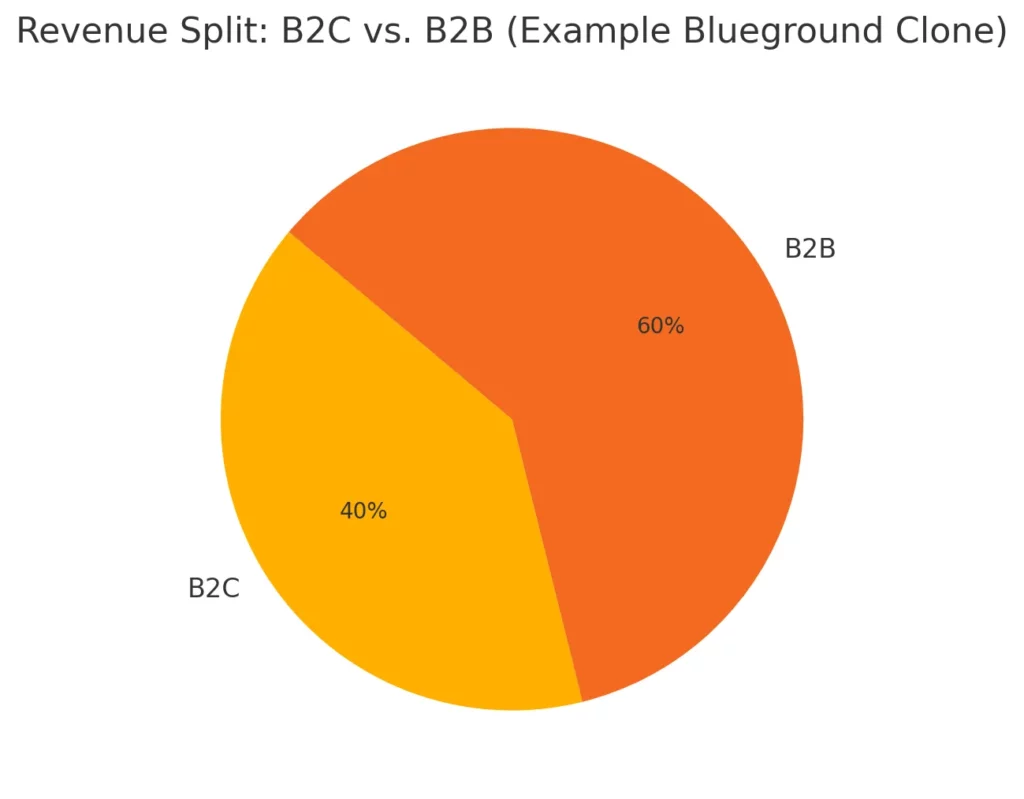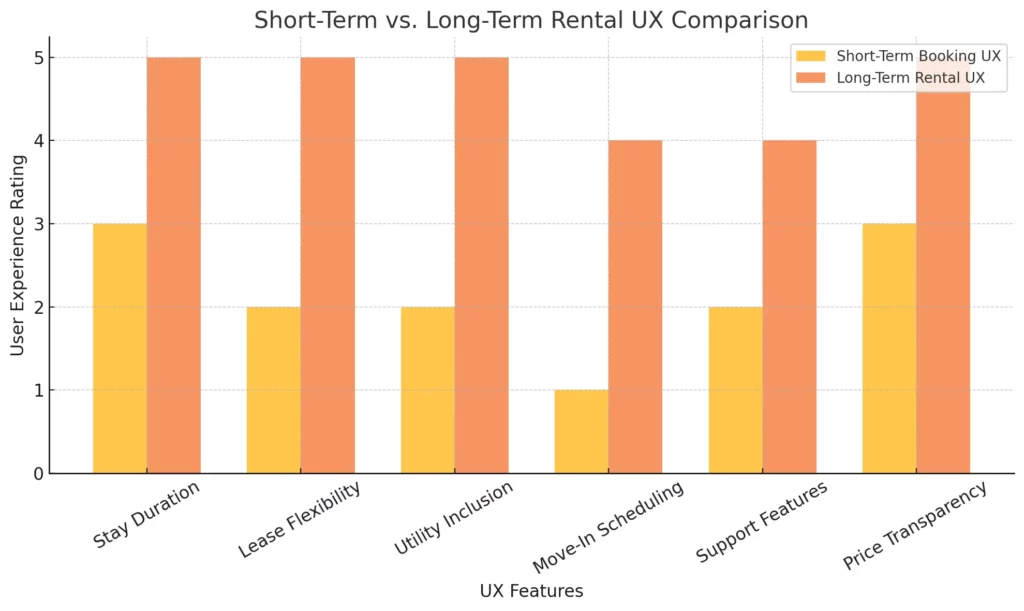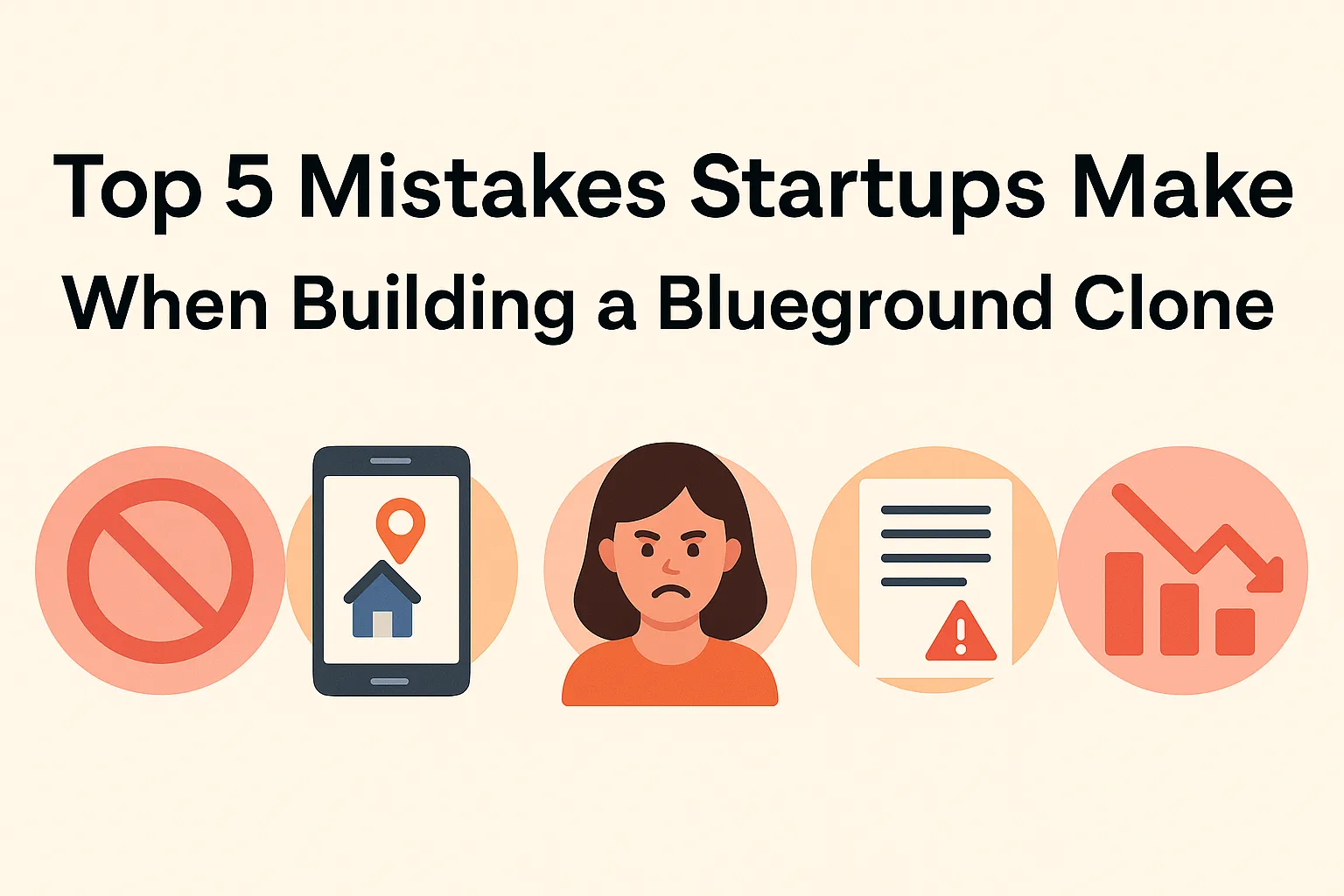You know that feeling when you’re stuck between subletting your place or hopping from one overpriced Airbnb to another? That exact gap is where Blueground made its mark—offering furnished, flexible, plug-and-play apartments for digital nomads, relocators, and business travelers. Naturally, many startups saw this booming market and thought: “Why not us too?”
And honestly, why not? The furnished apartment rental space is growing at lightspeed. The nomadic workforce is real. And no one wants to spend their first week in a new city figuring out how to assemble IKEA furniture. But here’s the thing: cloning Blueground isn’t a weekend side project. It’s a marathon full of legal hoops, UX nuances, and operational chaos waiting to happen.
If you’re considering launching your own Blueground clone like Statista’s rental apartments, first welcome to the game. Second, don’t fall into the same traps that many eager startups do. At Miracuves, we’ve worked with dozens of clients in this niche and trust us: these five mistakes can derail even the best ideas.
Mistake 1: Underestimating the Operational Complexity for Blueground
Building a Blueground clone isn’t just about developing a slick app. Behind the scenes, it’s a logistics-heavy beast. You’re not only managing tech—you’re juggling leases, utilities, cleaning schedules, furniture maintenance, and customer service in real-time.
What Happens:
Startups often focus entirely on the digital product and forget that this business lives and breathes in the physical world. When operations fail, user reviews tank.

Real Example:
A startup in Berlin launched with a clean UI but collapsed in three months because their local property manager quit, and the team couldn’t scale support fast enough.
Fix It: Create SOPs (Standard Operating Procedures) early. Integrate real-time ops tracking in your admin dashboard. Hire local fixers or ops managers as your first employees.
Learn More: How Blueground Makes Money in 2025: Inside the Revenue Model of the Global Rental App
Mistake 2: Ignoring Legal & Zoning Challenges
Here’s a brutal truth: in many cities, short-term rentals are a legal minefield. Blueground spends heavily on legal compliance for a reason. Zoning laws, tenant rights, lease terms, building codes—all vary wildly between cities.
What Happens:
Your platform might be beautifully built, but if your model violates local ordinances, you’re toast. Think fines, lawsuits, or even forced shutdowns.
Real Example:
A promising Blueground-style app in Toronto faced heavy fines because their listings breached municipal zoning laws. They didn’t survive their first audit.
Fix It: Consult a local real estate lawyer before launch. Build a compliance layer into your onboarding for property owners. Keep lease terms, security deposits, and cancellation policies crystal clear.
Mistake 3: Skimping on UX for Long-Term Renters
This isn’t a weekend stay. Blueground users might be signing up for 30, 60, even 365-day stays. A standard hotel booking interface won’t cut it. You need tailored flows.
What Happens:
Startups clone typical Airbnb-like layouts but ignore features critical to long-stay guests—like flexible lease dates, utility-included pricing, or mid-stay room upgrades.
Real Example:
One clone app saw a 50% drop-off at checkout because users couldn’t adjust move-in dates fluidly.
Fix It: Offer smart filters: pet-friendly, fast WiFi, monthly discounts. Integrate move-in walkthrough scheduling. Include user reviews specifically for long-term stays.
Mistake 4: Neglecting the B2B Opportunity
While most focus on individual renters, Blueground makes serious bank with corporate partnerships. Think relocation firms, HR teams, and traveling execs.
What Happens:
Startups go full B2C and ignore bulk booking potential, losing out on high-LTV contracts.
Real Example:
A client of ours doubled their MRR after pivoting to offer company-specific dashboards and invoicing for B2B clients.
Fix It: Add a “Corporate Accounts” module. Allow central billing, employee profiles, and stay history reports. Sell stability and support, not just convenience.
Mistake 5: Forgetting About Furniture & Interiors for Business
Digital founders often forget you’re not just renting space, you’re selling comfort. Misaligned decor, broken lamps, scratchy linens? Instant deal-breakers.
What Happens:
Startups outsource interiors without QC, leading to inconsistent experiences across units.
Real Example:
A renter booked for 3 months but left in 2 days because the sofa looked nothing like the photo and reeked of mildew.
Fix It: Standardize furnishing packages. Use 3D room planners. Partner with interior design services or offer virtual tours. A consistent aesthetic = brand trust.
Learn More: Business Model of Blueground Explained : Revenue & Strategy

Conclusion
Startups jumping into the furnished rental game often get blindsided by offline complexity, regulatory traps, and UX gaps. It’s not just about code—it’s about comfort, compliance, and customer support at scale.
Explore our Furnished Apartment Rentals App Development to get started.
What’s next? Hyperlocal expansions, AI-driven pricing, and VR walkthroughs are shaping this space fast.
At Miracuves, we help innovators launch high-performance app clones that are fast, scalable, and monetization-ready. Ready to turn your idea into reality? Let’s build together.
FAQ’s
1) What tech stack is best for a Blueground clone?
Go with a stack that supports real-time availability, secure payments, and geo-targeted listings. Think Node.js, React, and PostgreSQL.
2) Do I need property listings before launching?
Not necessarily, but having at least a handful of verified listings helps with trust and traction.
3) How do I price long-term stays?
Use dynamic pricing models based on stay length, seasonality, and local demand. Tools like PriceLabs can help.
4) What are the top cities to launch a Blueground-style app?
Start with expat-heavy or digital nomad hubs: Lisbon, Dubai, Berlin, and Austin are hot picks.
5) How can I onboard landlords?
Offer perks like guaranteed rent, professional photography, and tenant screening to attract high-quality landlords.
6) Can Miracuves help with both the tech and strategy?
Absolutely. From clone development to go-to-market plans, we cover the full journey.








